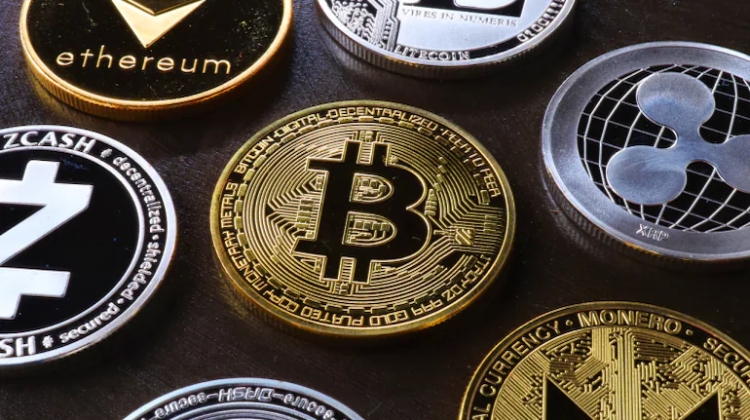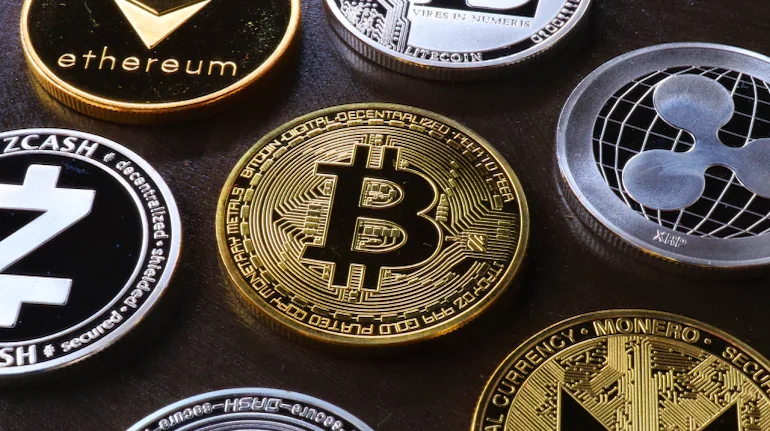Bitcoin A Digital Commodity That Can Enhance Your Purchasing Power
Bitcoin, the pioneering cryptocurrency, is emerging as a significant digital commodity that has the potential to enhance purchasing power for individuals and businesses alike.

Bitcoin is increasingly being recognized as a digital commodity that has the potential to boost your purchasing power. As more individuals and businesses adopt cryptocurrency, Bitcoin's value has shown significant growth over the years, making it an attractive option for those looking to enhance their financial assets.
Unlike traditional currencies, Bitcoin operates on a decentralized network, allowing for peer-to-peer transactions without the need for intermediaries. This unique characteristic not only provides greater security but also opens up opportunities for users to engage in a global economy.
Investing in Bitcoin can offer several advantages. As its adoption continues to rise, many believe that Bitcoin could serve as a hedge against inflation, preserving wealth in times of economic uncertainty. Additionally, the limited supply of Bitcoin—capped at 21 million coins—creates scarcity, which can drive up its value over time.
Moreover, Bitcoin's increasing acceptance by merchants and service providers means that it can be used for everyday purchases, further enhancing its utility as a means of exchange. As consumers become more familiar with digital currencies, the potential for Bitcoin to increase purchasing power becomes more pronounced.
In summary, Bitcoin is not just a speculative investment; it is a digital commodity that holds the promise of increasing purchasing power for those who choose to embrace it.
The Broader Implications of Bitcoin Adoption
As Bitcoin continues to gain traction, its implications extend beyond individual purchasing power. The growing acceptance of Bitcoin can influence various sectors, including finance, retail, and technology. For instance, financial institutions are increasingly exploring ways to integrate Bitcoin into their services, from offering cryptocurrency investment products to facilitating Bitcoin transactions for clients. This integration could lead to more streamlined financial services and greater accessibility for users.
Moreover, the rise of Bitcoin can spur innovation in payment systems. Businesses that adopt Bitcoin may benefit from lower transaction fees compared to traditional payment methods, which can enhance profitability and improve customer experiences. As more merchants accept Bitcoin, consumers may find it easier to use their digital assets for everyday purchases, further driving its utility.
Risks and Considerations
Despite its potential benefits, investing in Bitcoin is not without risks. The cryptocurrency market is known for its volatility, with prices capable of experiencing significant fluctuations in short periods. This unpredictability can pose challenges for investors and users alike, making it essential to approach Bitcoin with caution.
Additionally, regulatory developments can impact Bitcoin's future. Governments around the world are grappling with how to regulate cryptocurrencies, which could affect their legality, taxation, and overall market dynamics. Staying informed about regulatory changes is crucial for anyone involved in the cryptocurrency space.
The Future of Bitcoin
Looking ahead, Bitcoin's role as a digital commodity is likely to evolve. As technological advancements continue to shape the cryptocurrency landscape, Bitcoin may see increased integration with emerging technologies such as decentralized finance (DeFi) and blockchain innovations. This evolution could further enhance its appeal as a digital asset and a means of exchange.
In summary, Bitcoin stands out as a digital commodity with the potential to increase purchasing power and transform financial interactions. While challenges remain, its growing acceptance and potential benefits make it a compelling option for those looking to navigate the future of finance.
FAQ: Bitcoin as a Digital Commodity
Q1: What is Bitcoin?
A1: Bitcoin is a decentralized digital currency that enables peer-to-peer transactions over a blockchain network. It operates without the need for intermediaries, such as banks, allowing users to send and receive payments directly.
Q2: How can Bitcoin increase my purchasing power?
A2: Bitcoin has the potential to increase purchasing power by appreciating in value over time. As more people and businesses adopt Bitcoin, its demand rises, which can lead to price increases. Additionally, using Bitcoin for transactions can help hedge against inflation.
Q3: What are the advantages of investing in Bitcoin?
A3: Investing in Bitcoin can provide several benefits, including potential capital appreciation, protection against inflation, and the ability to participate in a growing digital economy. Its limited supply (capped at 21 million coins) also contributes to its value proposition.
Q4: Is Bitcoin widely accepted for everyday purchases?
A4: Yes, Bitcoin is increasingly accepted by various merchants and service providers, allowing users to make everyday purchases. As consumer familiarity with digital currencies grows, the utility of Bitcoin as a means of exchange continues to expand.
Q5: What makes Bitcoin different from traditional currencies?
A5: Unlike traditional currencies, Bitcoin is decentralized and operates on a blockchain network. This means it is not controlled by any central authority, and transactions can occur directly between users, providing greater security and transparency.
Q6: Can Bitcoin serve as a hedge against inflation?
A6: Many investors view Bitcoin as a potential hedge against inflation due to its limited supply and increasing demand. As traditional currencies may lose value during inflationary periods, Bitcoin's scarcity could help preserve wealth.
Q7: What should I consider before investing in Bitcoin?
A7: Before investing in Bitcoin, consider factors such as market volatility, regulatory developments, and your risk tolerance. It's essential to conduct thorough research and, if necessary, consult with a financial advisor to understand the risks and rewards associated with cryptocurrency investments.
What's Your Reaction?
















